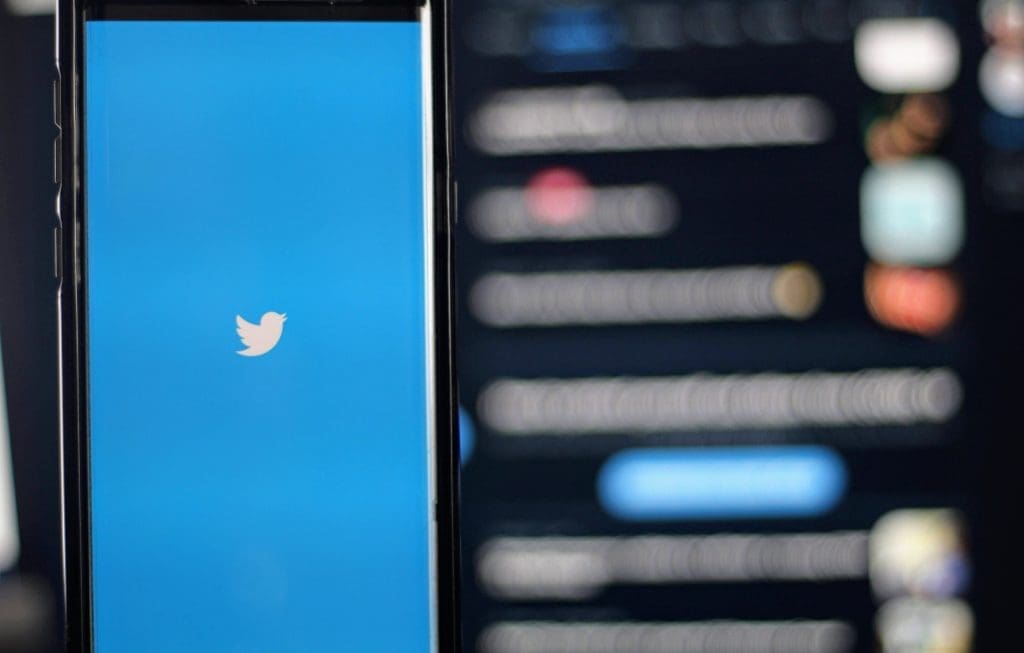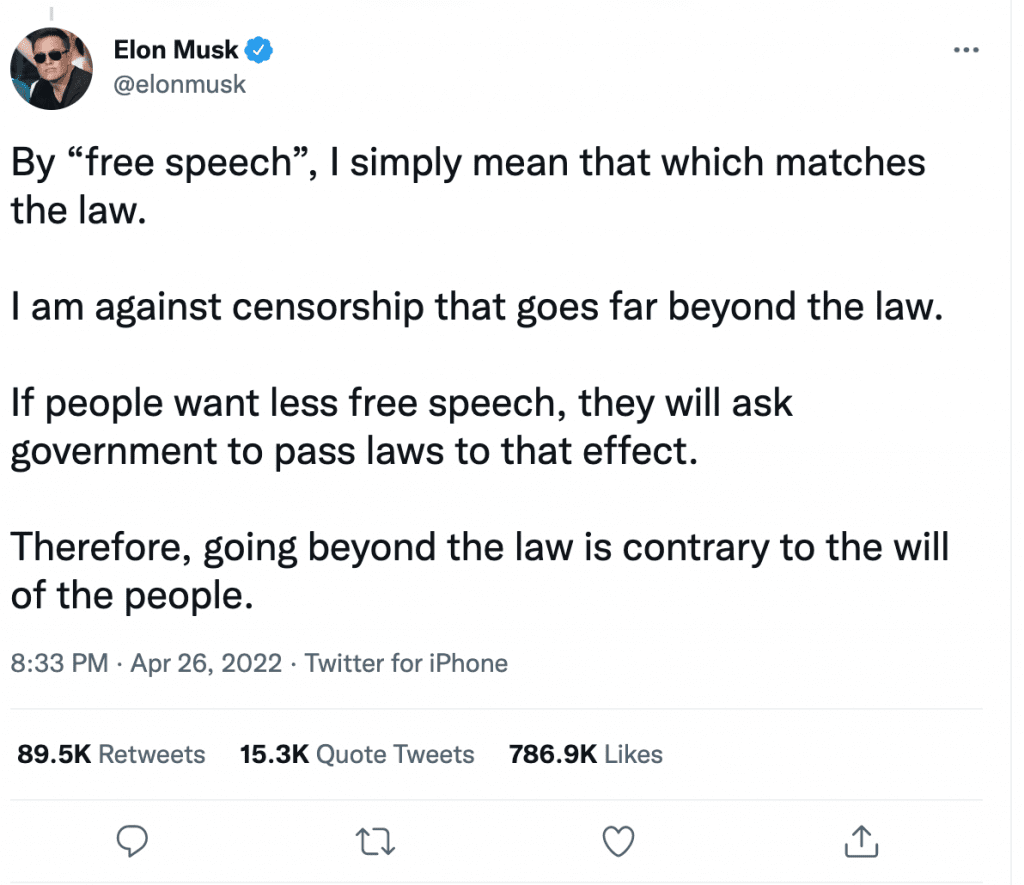Earlier this week, the news that Elon Musk buys Twitter for $44 billion was in the headlines, but what does this mean for the future of Twitter?
Twitter has been on seemingly shaky ground since previous owner and CEO Jack Dorsey left the company back in November 2021. Since the acquisition, there have been calls for a mass exodus directed at both the staff, and users of the network, due to the controversial nature of Musk’s proposed direction for the company.
So what does this mean looking ahead for Twitter, and is Musk as controversial as some think? Let’s take a look!

Photo by Joshua Hoehne on Unsplash
Who is Elon Musk and why is he buying Twitter?
Elon Musk is regarded by many as being the closest thing to Tony Stark that we have in the real world. The eccentric billionaire has been known for his pivotal roles in transforming multiple companies spanning multiple industries.
Elon Musk has also recently been a strong proponent of Dogecoin — a popular meme cryptocurrency — and has said multiple times that he intends to fund a SpaceX project using Doge. Is this something we can eventually expect to see integrated into Twitter?
Firstly, let’s take a look at a brief bit of history covering the new owner of Twitter:
- Founded x.com in 1999 which later evolved into Paypal
- Was instrumental in making Tesla a success as CEO
- Co-founded Neuralink — the first step in merging the human brain with AI
- Founded The Boring Company which looks to construct improved tunnel systems
- Created OpenAI which dramatically pushes forward what AI is capable of
- Founded SpaceX, creating the world’s first reusable orbital class rocket, Falcon 9
- Acquired Twitter in April 2022
Musk has played a key role in transforming the automotive industry, the aerospace industry, and the eCommerce industry. He has pushed forward new innovations in the Artificial Intelligence space and is now potentially set to transform the social media industry.
Why are people unhappy with the news that Elon Musk buys Twitter?
Despite this being the case, many people on Twitter are unhappy with Elon Musk’s acquisition. But why?
Since acquiring Twitter, Musk said that the social network should be the ‘town square’ of the internet while pushing for free-speech.
“Twitter is the digital town square where matters vital to the future of humanity are debated”
Musk has described himself as a ‘free-speech absolutist’ which has left many concerned as to the implications, and what this could mean for the network.
But are all of these concerns unfounded?
What could this mean for the future of Twitter?
Technology, free speech, politics, and Twitter — it’s complicated
Unfortunately, in 2022 it would be impossible to talk about Twitter without touching on politics. It’s no surprise that the last decade has been a very politically divisive time, largely due to the over-politicisation of nearly every aspect of our lives combined with significant and unprecedented world events. Even wearing a face mask seemed to have become a political statement throughout the pandemic.
We seem to have gotten to a place in time, both online, and offline, where there is very little room for nuanced mature conversation, and civil discourse. The divide between the American political left and right continues to widen, with both typically thinking that the other is dangerous, and a threat to democracy.
Twitter has become synonymous with cancel culture and it’s no secret that Silicon Valley and the entertainment industry have somewhat of a monopoly when it comes to political leaning. Many conservatives and centrists feel that they have been disproportionally censored on networks such as Twitter, leaving them without a platform to express their thoughts and opinions.
Many feel as if they have been tarred with the same brush as far-fight intolerant hate groups despite holding Christian, conservative or moderate viewpoints. The problem is, while many of the far-left claim to be against intolerance, they simultaneously exhibit intolerance towards traditionalist conservative values in many cases.
The basis for many of the tensions on the network comes down to progressivism vs traditionalism. Left vs Right. Democrat vs Republican. The common flaw that both sides share, is thinking this is a simple case of right vs wrong. Until now, Twitter has consisted of large vocal numbers of liberal users that have been able to share their views without fear of censorship.
Now that Musk has made clear his intention for free speech to be the core of the network going forward, many Twitter users think this means that the platform will be compromised by far-fight users spreading hate. This seems analogous to wanting to close down a whole orchard due to fear of a small percentage of rotten fruits being grown on a small number of trees.
Tolerance needs to extend to both sides of the political spectrum. However, we must live in a world where hate, racism and extremism are tackled effectively. So what is the solution?
Musk has seemingly thought about this and has tweeted:

Musk on Twitter – “By “free speech”, I simply mean that which matches the law. I am against censorship that goes far beyond the law. If people want less free speech, they will ask government to pass laws to that effect. Therefore, going beyond the law is contrary to the will of the people.” — @ElonMusk
I think that this is a good starting point, but there are other complexities involved here which are beyond the scope of this article. As we are predominantly looking to cover the implications of new ownership pertaining to social media as a whole, we’ll move on.
What new technology Twitter features can we expect in 2022?
Musk has said repeatedly that he intends to fix the network’s long-standing problems and shortcomings. Although many of these changes aren’t dramatic overhauls, they are requests that users have been asking for throughout the years:
Elon Musk has suggested that an edit button will be added to Twitter, allowing users to edit tweets that have previously been sent. This has been a popular request for quite some time with many users having to delete and repost tweets if they notice a typo or mistake.
Open source algorithm
One of the bigger changes is making Twitter’s algorithm open source for transparency purposes. This will allow everyone to see and understand why certain topics and hashtags are trending the way that they are. This will be a welcome change as most online networks such as YouTube have been manually curating their ‘trending’ section for some time now.
Longer Tweets
Longer tweets have also been a requested feature for a long time now. Ever since Twitter increased the character limit back in 2017 from 140 characters to 280, many users have still said that this isn’t enough. The main justification for a short tweet limit is to keep posts concise and brief although multiple tweets can be sent at once and linked together to combat this. It is unclear as to whether a longer character limit will bloat the network and negatively impact its fast-paced nature, however.
Tackling fake accounts / bots
Another problem that Twitter has had for quite some time is bots and fake accounts. These can be used to spam the network, inflate ‘like’ and ‘retweet’ counts, and also contribute to scams. Many bot accounts can generate a lot of engagement to the point where it is clear that this is a problem that needs to be dealt with. Musk has mentioned that he plans to authenticate every human user which may be a good first step in solving this problem.
What can we expect from Twitter beyond 2022?
Looking further ahead than 2022, one thing is for sure, Elon Musk isn’t scared of making big changes or ambitious commitments. We can expect Twitter to benefit from the new leadership over the next few years, but what bigger features and changes can we look forward to beyond 2022?
Twitter crypto and Bitcoin integration
Jack Dorsey had previously mentioned that he was looking at adding a BTC tipping feature for Twitter, allowing users to send each other small amounts of Bitcoin. NFT profile pictures were also integrated into the network earlier in 2022.
Elon Musk is expected to continue with crypto integration, possibly even including his favourite meme coin Dogecoin as a potential tipping option.
Wider BTC integration is also expected once the Bitcoin Mining Council reports on improvements and optimisations that have positively impacted energy consumption.
Subscription model
In addition to taking the company private, Musk is thinking of introducing a subscription-based model which would eliminate pressure from advertisers that could potentially sway decisions on how the network is run.
Decentralisation
This one is somewhat unlikely, but Twitter could go down the decentralised route if Musk is still pushing for a network where free speech is its priority.
This would mean that there wouldn’t be a central host or authority responsible for the network. This would be ideal for openness, content ownership and allow for democratic decision-making amongst the users on the network. This would leave the future of Twitter largely dependent on the direction its users want to take it.
Conclusion
All in all, we feel that the “Musk buys Twitter” headlines are positive. It’s a step forward in many ways: new leadership, cultural and political changes, and new technology innovations are just a few!
What are your thoughts about Elon Musk buying Twitter and what do you think this means for the future of Twitter? Do you think it is a good thing or a bad thing?
Please let us know in the comments section below — we are interested in hearing what you think.






I think bitcoin and crypto integration will be a great option if added. Let’s see what new changes we come across after this deal in coming months.
Thanks for sharing the information.
Absolutely! We are big lovers of crypto so any integration with Twitter and progression in this area would be amazing.